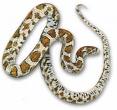You know, who is easier to provoke to aggression

People from the so-called. with the warrior gene they react with greater aggression to provocation – informs the letter “Proceedings of the National Academy of Sciences”. Scientists from several research centers in the USA and Great Britain performed the experiment in the group 78 young men. Everyone had to take a vocabulary test first. His results were decisive for this, how much money will they earn. They were then informed, that some anonymous player, connected to the network, he took some of this earnings. In retaliation, each man could painfully punish his opponent by ordering him to swallow a selected dose of a smoker, hot sauce. However, he had to pay for it, so revenge was expensive. As scientists point out, both to collect money from the player's account, and the punishment were purely virtual – in fact, no one had to e.g.. eat the sauce. The researchers also checked, what variants of the monoamine oxidase A gene (MAO-A) were owned by men. The enzyme contained in it breaks down the compounds that regulate the work of the brain (the so-called. neurotransmitters), like serotonin, dopamine, noradrenaline. Depending on the version of this gene, humans produce different amounts of the MAO-A enzyme – with the less active version, less of it is produced, and with the active version, the production is large. Earlier research suggested, that there is a relationship between the inactive variant of the MAO-A gene and the tendency to aggression.
And because, in communities, which in history have become known as belligerents, this version occurs in as many as one-third of people, came to be called “a warrior's gene”. However, there was no direct evidence for this relationship. Recent work has demonstrated, that the overall level of aggression is only slightly elevated in men with a low-activity form of the MAO gene- A, compared to men with an active form.
However, they reacted with much more aggression, when they were provoked, np. then, when a player has withdrawn a significant amount of money from their account. The authors of these studies believe, that they will help to understand the underlying causes of aggressive behavior and violence among people, as well as mechanisms for making political decisions or committing crimes. The experiments were conducted by scientists from the Brown University in Providence (stan Rhode Island), Princeton University (New Jersey tent), The University of California, Santa Barbara, and the London School of Economics and the University of Edinburgh.







